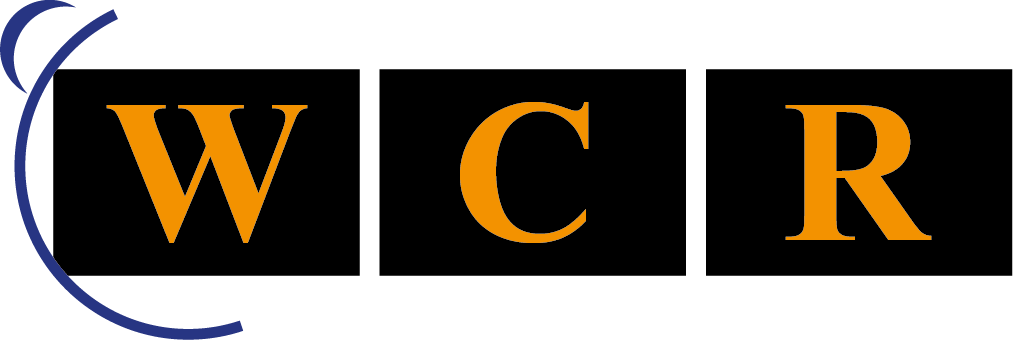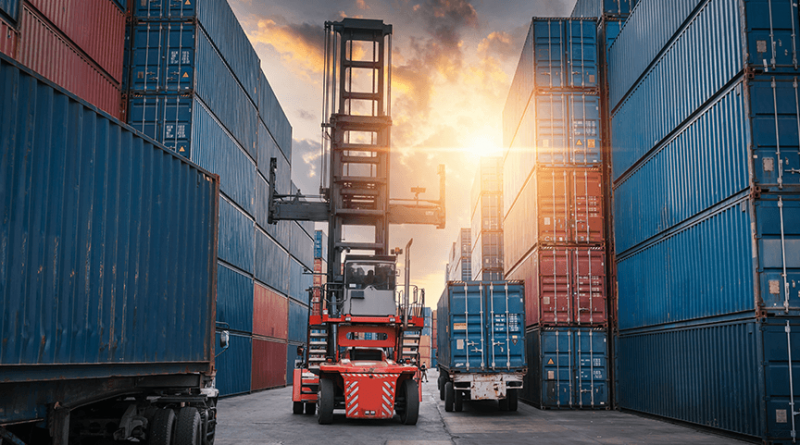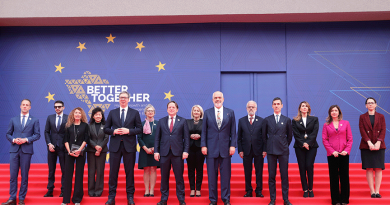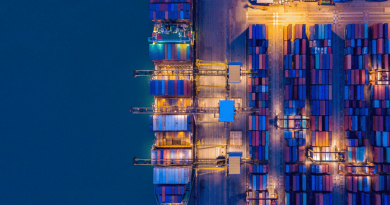Liberal views on trade and development
Dr Edwin van de Haar is an independent scholar specialising in liberal international political theory and political economy
The liberal tradition in political thought is by no means unified. The original ideas developed in the (Scottish) Enlightenment, most importantly by David Hume and Adam Smith, have been modified extensively. This has led to different definitions and practical applications of individual freedom, the core idea of liberalism, but also of most other ideas associated with the liberal tradition1.
Regardless this proliferation, the wide liberal support for free trade and globalization as a means to alleviate poverty and foster human development more broadly has been rather constant, although the ideal of trade free from all government interference has never been within reach.
With the World Trade Organization in a shambles, the increase of bilateral and regional trade treaties which often hamper free trade more than fostering it, and a general anti-liberal sentiment across the globe, the liberal ideals may not be a very popular at present.
However, this does not say anything about their empirical or moral validity. Liberal recipes to fight poverty and to foster development still work and need support, both through domestic and international policies.
Global inequality
In international relations inequality is the norm, in many different fields. Often this is not problematic in liberal eyes, as long as individuals get the chance to use their talents in the way they see fit. Grave hindrances, for example caused by a lack of basic needs and insufficient protection of classical human rights should be removed, as they often make individual flourishing impossible.
In contrast to what is often thought, liberals are convinced it is possible for all countries to implement policies that foresee in these basic liberal preconditions. Most often, bad circumstances don’t just happen to countries, nor should they be seen as the inevitable result of regrettable historical events such as slavery, imperialism, let alone the alleged detrimental effects of capitalism.
As Lomasky and Téson show, the fate of the inhabitants of developing countries lies not in the hand of failing rich countries, but are mainly due to poor domestic policies, lack of, or failing, domestic institutions and a no respect for classical human rights, such as freedom of opinion, right to property, or a free press2.
Evidence
Of course, this is a broad topic, which can be approached from many angles. In this short piece, the focus is on the above-mentioned classical liberal rights and measures, but also includes broader topics such as governance and the development of human capital, in Sub-Sahara Africa.
This is made visible through an – admittedly – rough measure: the outcomes and ranking of countries in a number of well-known and internationally respected indexes. These indexes compare countries on domestic policies.
A presentation of this kind has to be treated with caution. Methodologically, the indexes are different and a comparison is not always easy or fully warranted. Definitions and operationalizations differ, just like the way results are aggregated into (final) scores.
Nevertheless, these indexes provide a useful indication of good policies from a liberal view. Especially for the countries of Sub-Sahara Africa, which mostly contain low-income countries. Contrary to some assumptions that is no barrier for some governments to implement different policies. Being a low-income country does not automatically lead to bad policies!
Indexes
Given space limitations, the five indexes are introduced by a broad outline. Please use the references for further information. For practical purposes 5 indexes are used, published in 2018 and 2019.
Since the 1970s, Freedom House publishes the Freedom in the World Index, which determines how individual rights and liberties are applied and protected, on the basis of 25 indicators. It groups countries in ‘free’, ‘partly free’ and ‘not free’. The top 5 free countries in Sub-Saharan Africa are Ghana, Botswana, Namibia, Benin and Senegal3.
The International Property Rights Index is published by the American Property Rights Alliance (PRI), expressing the degree of protection of property rights, both material and intellectual, per country. The PRI emphasizes that property rights are also human rights, and that they are essential for economic and social development. In 2019 Rwanda (42nd), South-Africa, Botswana, Ghana, Burkina Faso and Tanzania (73rd) were the highest ranking Sub-Saharan countries4.
Transparency International publishes The Corruption Perception Index, ranking countries to the degree there is corruption and fight corruption, surveyed among businesspeople and experts. Corruption undermines the trust people have in the political and social-economic systems within societies. In the ranking, Sub-Saharan Africa is perceived as the region with the most corruption, still the countries that score best are Seychelles, Botswana, Cape Verde, Rwanda and Namibia5.
The Ibrahim Index measures the governance of African countries, defined as ‘the provision of political, social and economic public goods and services that every citizen has the right to expect from their government, and that a government has the responsibility to deliver to its citizens’. In the overall governance category, we find Namibia, Botswana, Ghana, South Africa and Rwanda6.
The World Bank publishes the Human Capital Index, which focuses on different indicators, such as infant mortality, life expectancy, and the chances on education for girls and boys. Countries that score best are Zimbabwe, Gambia, Ghana, Namibia, Botswana and Senegal7.
This leads to the following summary:

Botswana, Namibia and Ghana, especially, succeed in implementing relative liberal policies, with South Africa, Senegal and Rwanda following their lead. It must be noted that a position on an index is always relative. None of the Sub-Saharan countries are in the absolute top, although some score surprisingly high.
Also, this is not to claim these are countries without problems, or that they are liberal countries, let alone liberal-democratic ones. Their absolute rankings do not warrant such a suggestion. It does indicate that being a low-income country does not need to be a barrier to implement relatively liberal policies, which provide individual citizens more (social-economic) opportunities than is the case in other Sub-Saharan countries. Hence, the liberal emphasis on domestic policies is fully warranted.
Liberal recipes to fight poverty and to foster development still work and need support, both through domestic and international policies
Liberal international policies
Liberals believe domestic policy is most important to promote development. Still, the perennial practice in international relations also is: what can other countries do in support of this?
The short liberal answer is one of restraint: stay clear, do not (militarily) interfere, be modest about the possible success of ‘helping’, while ensuring the best global economic conditions.
The latter is done through ensuring free trade, which is also the foreign economic policy liberals are most strongly associated with. The popularity of free trade has known its high and low tidings, ever since the Ancients8.
Therefore, the current low esteem of free trade is nothing new. There have always been people who distrust trade, for economic, political or moral reasons9. On the other hand, there are also too many liberals who have claimed way too much on behalf of free trade, especially its peace-enhancing effects, which are erroneous10.
The lack of support for trade still deserves to be fought. Friedrich Hayek and Milton Friedman, to name two great thinkers, have shown the importance of continuing to argue against the topical grain.
The evidence continually shows the superior results of even relatively free trade, which has real effects for the improvement of the life of (poor) people. Countries that are committed to free trade become richer and are able to create more possibilities for (economic and human) development.
Columbia University’s Arvind Panagariya is just one of the many who found clear evidence for that. In his book Free Trade and Prosperity he shows that developing countries have enormously profited from the recent wave of increasingly free world trade11. The World Bank is even clearer:
Trade is an engine of growth that creates better jobs, reduces poverty, and increases economic opportunity. Recent research shows that trade liberalization increases economic growth by an average by 1.0 to 1.5 percentage points, resulting in 10 to 20 percent higher income after a decade.
Trade has increased incomes by 24 percent globally since 1990, and 50 percent for the poorest 40 percent of the population. As a result, since 1990, over one billion people have moved out of poverty because of economic growth underpinned by better trade practices12.
Yet, in contrast to Richard Cobden’s famous argument, it must be acknowledged free trade is no panacea. Domestic policies are needed to see that trade benefits find their way to the wider population. Also, when some groups are out-competed at the world market, they (temporarily) need domestic support. Still, the less than perfect trade arrangements of the last decades have had enormous positive effects on development.
Foreign aid
By way of a closing remark, in contrast to trade, governmental development aid is not supported by liberals. It still largely is, as Lord Peter Bauer had it, “bringing money from the poor in the rich countries, to the rich in the poor countries.”
The research of his modern-day successors, most notably William Easterly and Dambisa Moyo, largely confirm this13. The structural effects of governmental foreign aid are minimal and often detrimental, resulting in ‘aid addiction’ in the receiving countries.
Liberal have the same doubts about the structural effects of aid by private donors such as NGO’s (positive local effects are possible, for example in health care or education). Yet as long as these private donors do not use public money, this remains a case between donor and recipient. However, in liberal eyes it fails as an international policy to foster development.
Conclusion
Inequality and poverty remain a global reality, which can have detrimental effects to the development of individuals. Liberals think this should change but emphasize this is mainly done through improved domestic policy in low-income countries based on proven liberal principles.
This is not just theory, it is a real possibility, as the some of the countries in Sub-Sahara Africa show. The best way the world can assist in this process is to provide truly free trade, while abandoning governmental foreign aid. Global development is too important to not make the effort.
Endnotes
1. Edwin R Van de Haar, Degrees of Freedom. Liberal Political Philosophy and Ideology (New York and London: Routledge, 2015).
2. Loren E Lomasky and Fernando R Tesón, Justice at a Distance. Extending Freedom Globally (Cambridge: Cambridge University Press, 2015).
3. Freedom House, Freedom in the World 2019 (Washington DC).
4. Property Rights Alliance, Property Rights Index 2019 (Washington DC).
5. Transparency International, Corruptions Perceptions Index 2019 (Berlin).
6. Mo Ibrahim Foundation. 2018 Ibrahim Index of African Governance (London and Dakar).
7. World Bank, Human Capital Index 2018 (Washington DC).
8. Ronald Findlay and Kevin O’Rourke, Power and Plenty. Trade, War, and the World Economy in the Second Millennium (Princeton and Oxford: Princeton University Press, 2007).
9. Douglas A Irwin, Against the Tide. An Intellectual History of Free Trade (Princeton: Princeton University Press, 1996); Jagdish Bhagwati, In Defense of Globalization (Oxford & New York: Oxford University Press, 2004); Razeen Sally, Trade Policy, New Century. The Wto, Ftas and Asia Rising (London: Institute of Economic Affairs, 2008).
10. Edwin R Van de Haar, “The Liberal Divide over Trade, War and Peace,” International Relations 24, no. 2 (2010); “Free Trade Does Not Foster Peace,” Economic Affairs 40, no. 2 (2020).
11. Arvind Panagariya, Free Trade and Prosperity: How Openness Helps the Developing Countries Grow Richer and Combat Poverty (Oxford: Oxford University Press, 2019).
12. www.worldbank.org/en/topic/trade/overview#1 (accessed 19 November 2021)
13. William Easterly, The Tyranny of Experts. Economists, Dictators and the Forgotten Rights of the Poor (New York Basic Books, 2013); Dambisa Moyo, Dead Aid. Why Aid Is Not Working and How There Is Another Way for Africa (London: Penguin, 2009).
Dr Edwin van de Haar is an independent scholar specialising in liberal international political theory and political economy (see www.edwinvandehaar.com). This article is based on a chapter published in a Dutch volume entitled Difference There Must Be. Liberal Views on Inequality, published by the liberal think tank Prof Mr BM Telders Foundation (www.teldersstichting.nl).




